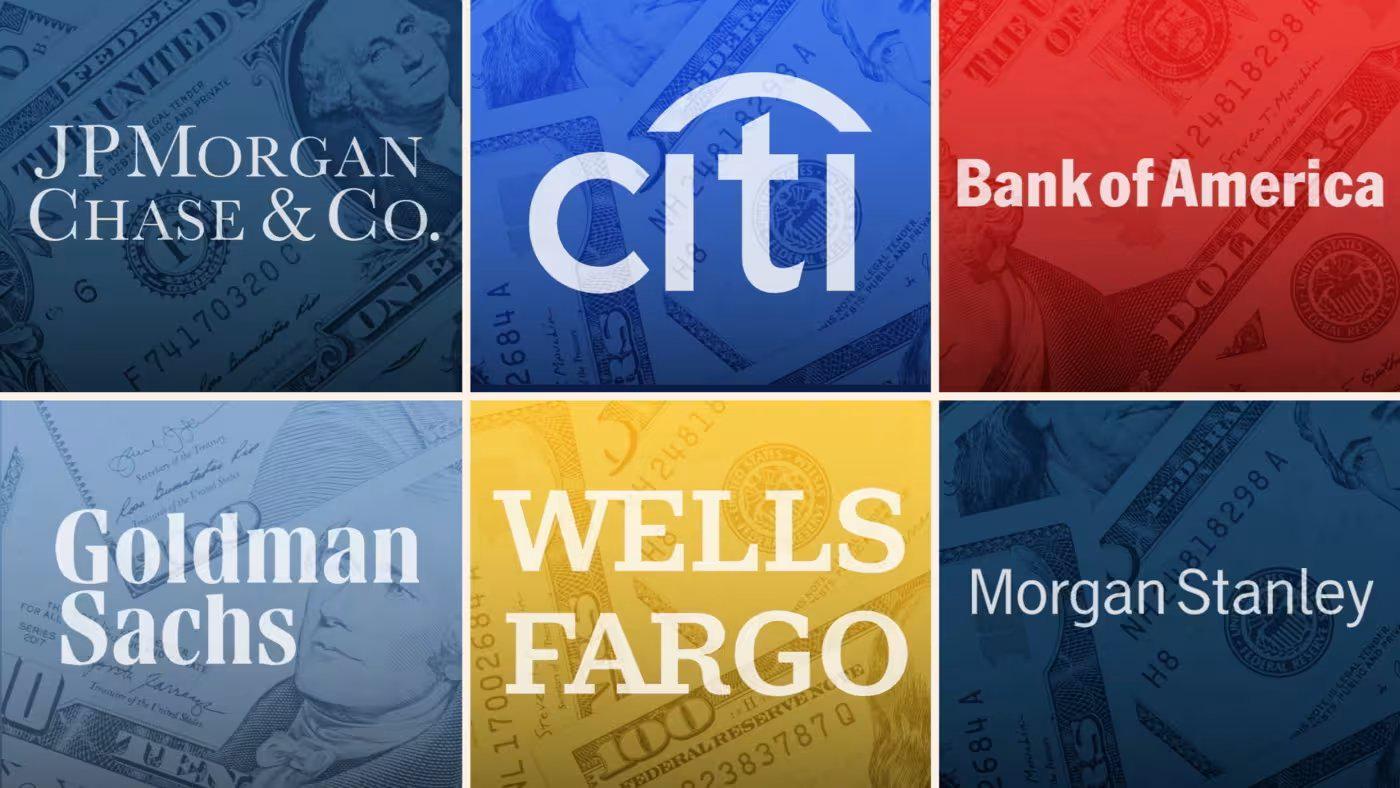Wall Street Banks Reveal Their Tariff Warnings: What's Next for U.S. Economy?
Under the Shadow of Tariffs, How Wall Street's Biggest Banks View the U.S. Economy? In the latest earnings calls, major investment banks have shared their views on how these trade policies are affecti

Under the Shadow of Tariffs, How Wall Street's Biggest Banks View the U.S. Economy?
In the latest earnings calls, major investment banks have shared their views on how these trade policies are affecting businesses, consumers, and their outlook on the economy.
JPMorgan Chase: Retail clients are preemptively spending to avoid price hikes from tariffs, leading to stronger-than-expected Q1 results for jpmorgan. Corporate clients, however, have shifted from strategic decisions to short-term business optimization, primarily focusing on supply chain adjustments and understanding the tariff impact, remaining in a wait-and-see mode. The bank believes small businesses and low-net-worth consumers will be more affected, while larger companies have more resources and experience to navigate the uncertainty.
JPMorgan's executives mentioned during earnings calls that some retail companies are already experiencing weaker consumption from low-income groups. The bank's credit card data also shows that low-net-worth customers are struggling to repay their debts, with a high percentage of spending directed towards essential goods. However, it was also noted that the financial condition of these groups has not yet reached a "distress" level, and some low-net-worth customers increased their spending in April. The bank expects tariffs to push U.S. inflation up by 0.5%, with the Fed likely to cut rates three times this year.
Morgan Stanley: As of April, U.S. capital markets have been highly active, with clients keen on financial markets for fear of missing out. Some corporate clients are taking a wait-and-see approach, but there has not been a large-scale slowdown in business activity. The impact of tariffs on business remains unclear but is expected to become clearer over time. morgan stanley does not foresee a significant slowdown in corporate activities by early Q2.
Bank of America: We feel like the right answer is to use the blue-chip consensus. The company adopts this as its baseline, along with four additional scenarios, including three downside risks. Bank of America expects U.S. GDP to slow down, with inflation slightly higher than anticipated. They forecast the U.S. unemployment rate will rise to 6% by 2025 and 2026 and have set aside additional risk reserves accordingly.
The bank's executives also discussed how small businesses are grappling with the impact of tariffs, reassessing their products and services' ability to absorb costs. Small business owners are generally slowing down investment and hiring plans, resulting in weak loan demand. However, there is still optimism within the small business sector, with industries such as healthcare and veterinary services continuing to invest despite the tariff uncertainty.
Goldman Sachs CEO: The level of market uncertainty has significantly increased, with global trade growth already slowing before Trump's announcement of reciprocal tariffs. The tariff war has worsened the situation, with CEOs of global companies expressing concern over short-term uncertainty.
Goldman Sachs believes that uncertainty will decrease over time, but it is still wise to proceed with caution until the situation becomes clearer. The firm also noted that despite increased uncertainty due to tariffs, global clients remain engaged with Goldman Sachs and continue to show interest in collaboration.
Wells Fargo: Despite the uncertainty surrounding tariffs, both individual and corporate client activities remain strong. Everyone is trying to understand the impact of tariffs on their businesses, but so far, the situation remains chaotic. No massive borrowing has been observed to preemptively cope with tariffs. Wells Fargo's high- and low-net-worth clients have not experienced significant deterioration, with only the office building portfolio under systematic pressure, though risks remain manageable.
Wells Fargo's economic forecast model predicts U.S. unemployment could rise to 5.8%-6% in the coming quarters, and the bank has tightened credit controls, increasing risk reserves accordingly.
Citigroup: With a robust global network and a strong balance sheet, Citigroup is well-equipped to withstand the impact of tariffs.
Its retail clients' spending has remained stable, with a 3% growth in Q1 and continued resilience into April. However, under the shadow of tariffs, consumer behavior has shifted from discretionary spending on travel and entertainment to essential goods. Credit card delinquencies and bad debts have remained in line with expectations without significant increases.
Citigroup has raised the weight of economic downside risks in its economic forecast model.
Disclaimer: The views in this article are from the original Creator and do not represent the views or position of Hawk Insight. The content of the article is for reference, communication and learning only, and does not constitute investment advice. If it involves copyright issues, please contact us for deletion.